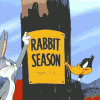Maybe it's ''us.'' Meaning we have habitually enjoyed the older musical pieces most in our relative youth. (That's why I find Barry White's LOVE THEME to be my all-time favorite single 20 years before Ally McBeal ever shimmied under the locked door.)
Well, when it comes to Williams, I've found some pigeonhole his composing ability / merit with only a
few scores between the end of the 70s and early 80s, which--if--hypothetically--one were to take it as his entire body of work, he would seem limited and repetitious with some exceptions (
The Empire Strikes Back being such an exception). Looking at the bigger picture (e.g., the TV and movie credits I posted yesterday), one sees that he had a richer imagination than the BIG FANFARE type of scores he delivered for
some of the films of Lucas, Spielberg and yes, Donner's
Superman. He was more creatively inspired with (among other scores of the period)
Dracula's mix of true horrific cues and tragic as opposed to traditionally sweeping romantic themes.
Personally, the best tracks of the
Superman score are
The Destruction of Krypton, The Death of Jonathan Kent and
Super Dam and Finding Lois--not the main or end title.
Williams or no Williams, the Academy Awards were flat-out insane to give Goldsmith the Oscar solely when he went Satanic in '76.
Well, its a brilliant score, with Goldsmith capturing the entire emotional range of elation, suspicion, familial love, growing terror, inexplicable, smothering horror, and weighty heartbreak in a way unheard in any other horror film. Much like the actual movie, Goldsmith's score was a monumental achievement, and oh, how his choral arrangements have been swiped
endlessly since in innumerable movies and TV series dealing with Satan, classical suggestions of evil, spiritual warfare, etc. I have to disagree with you about the Academy's decision that year. But Goldsmith was on a roll in '76, among his other compositions, the innovative score for
Logan's Run.
And his OMEN sequel music in 1978 was even better (as was the film), especially in the moving music during the Damien/Mark dilemma. If I'd been a voter for musical score, I would have been forced to have a three way tie with OMEN II, CAPRICORN ONE and SUPERMAN.
Damien: Omen II and
Capricorn One were standouts, to be sure, and I too would see them as a tie in terms of overall quality, whether they were written for films or not.
Which is fitting as it edges back to the main thread topic.

Heh.






